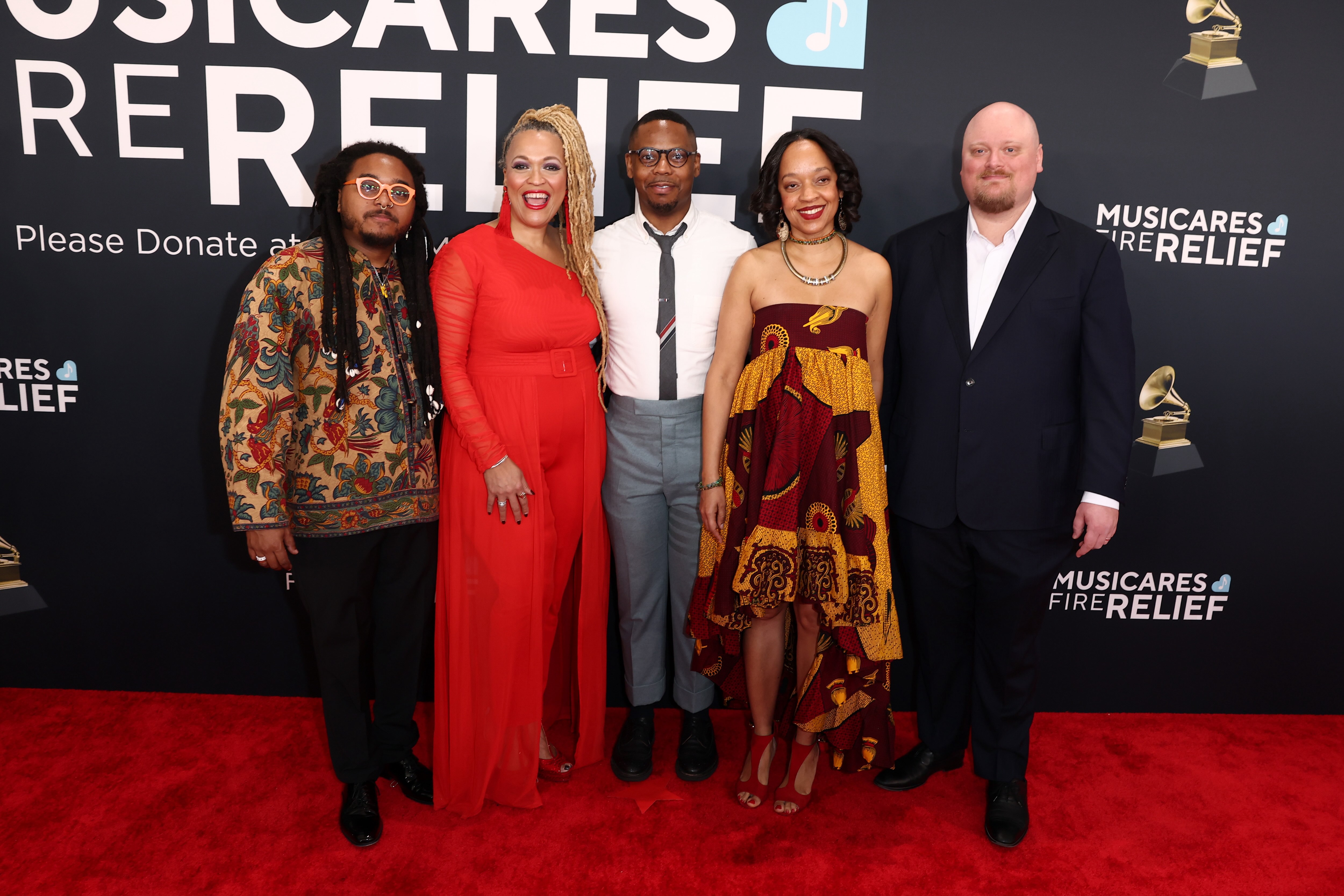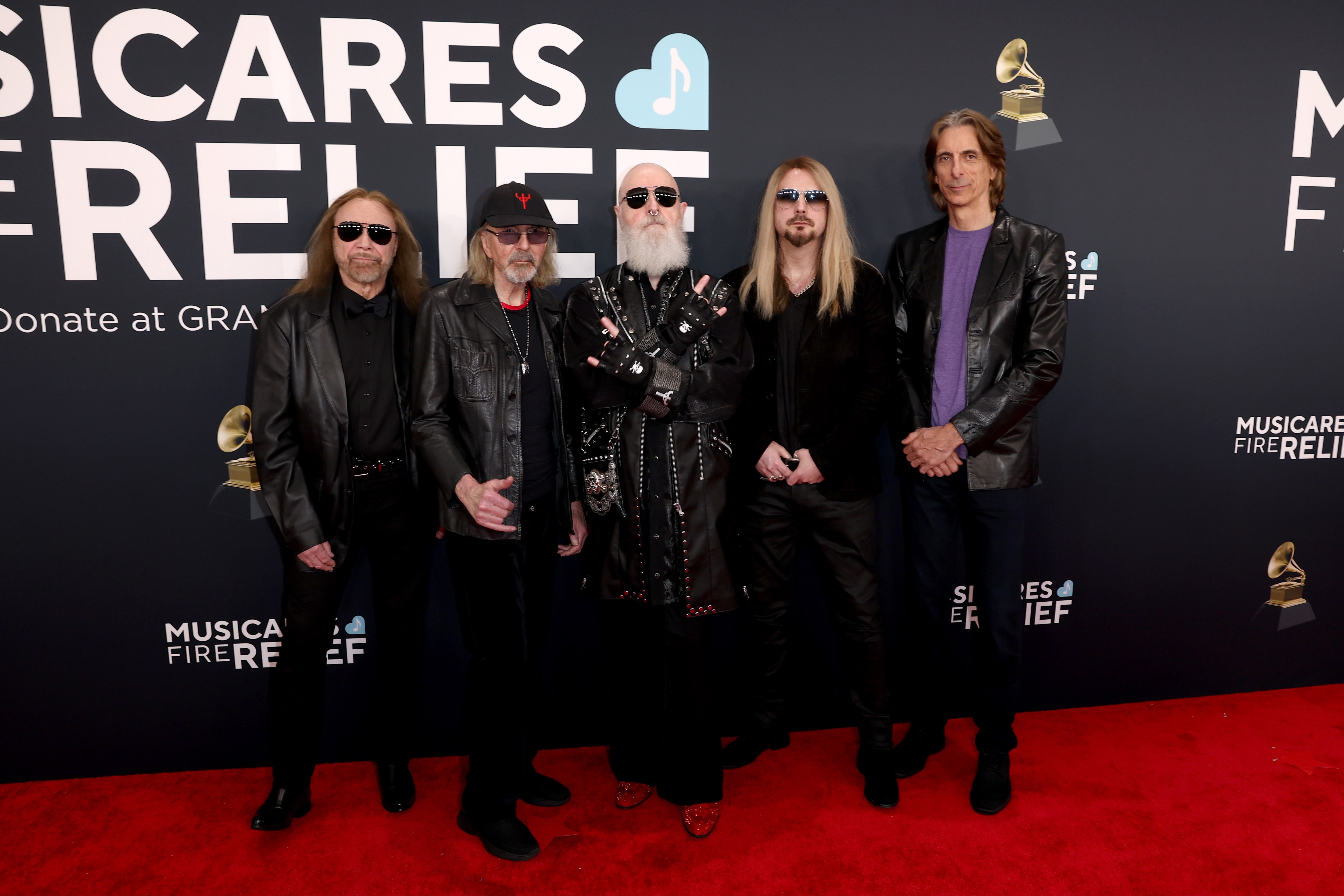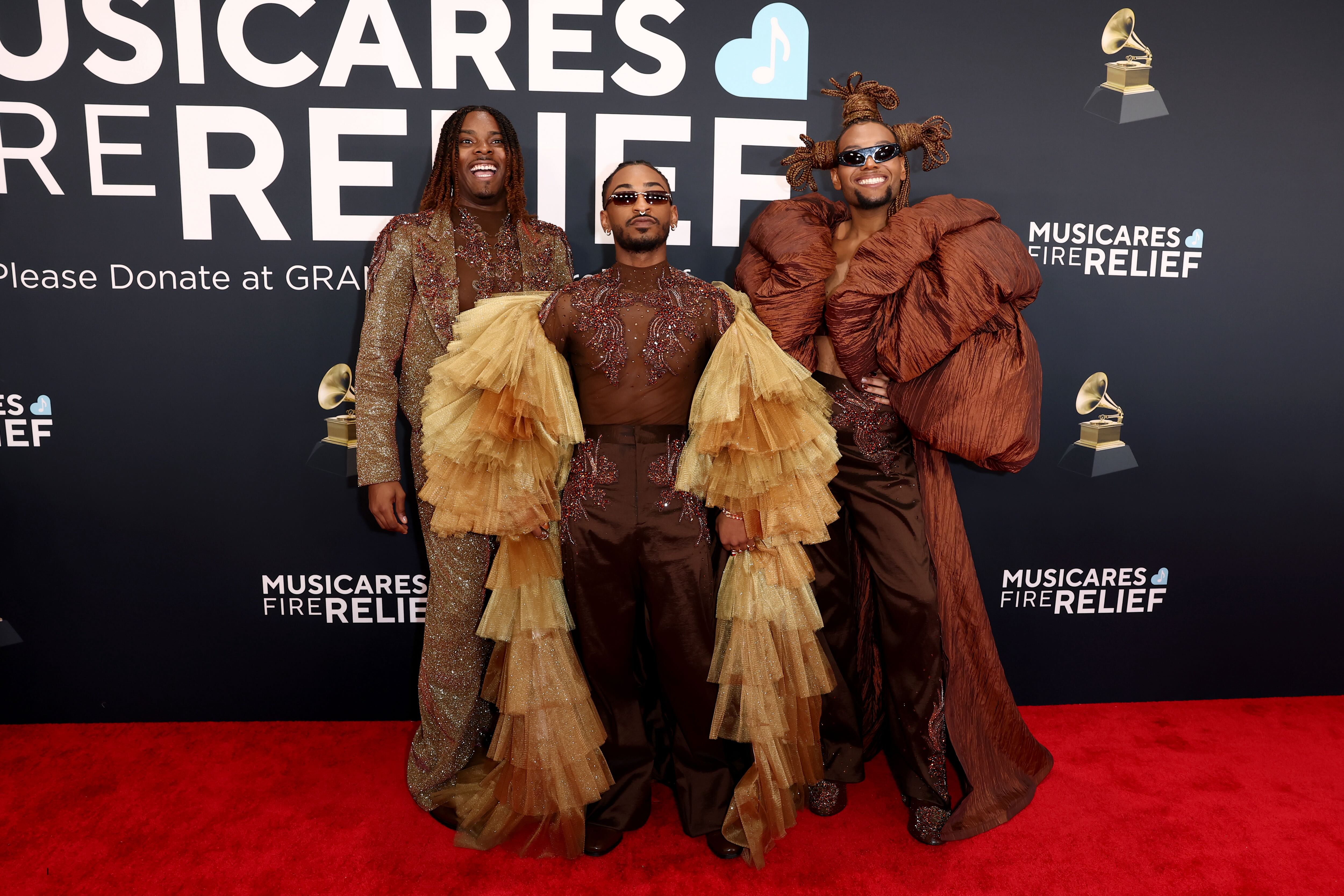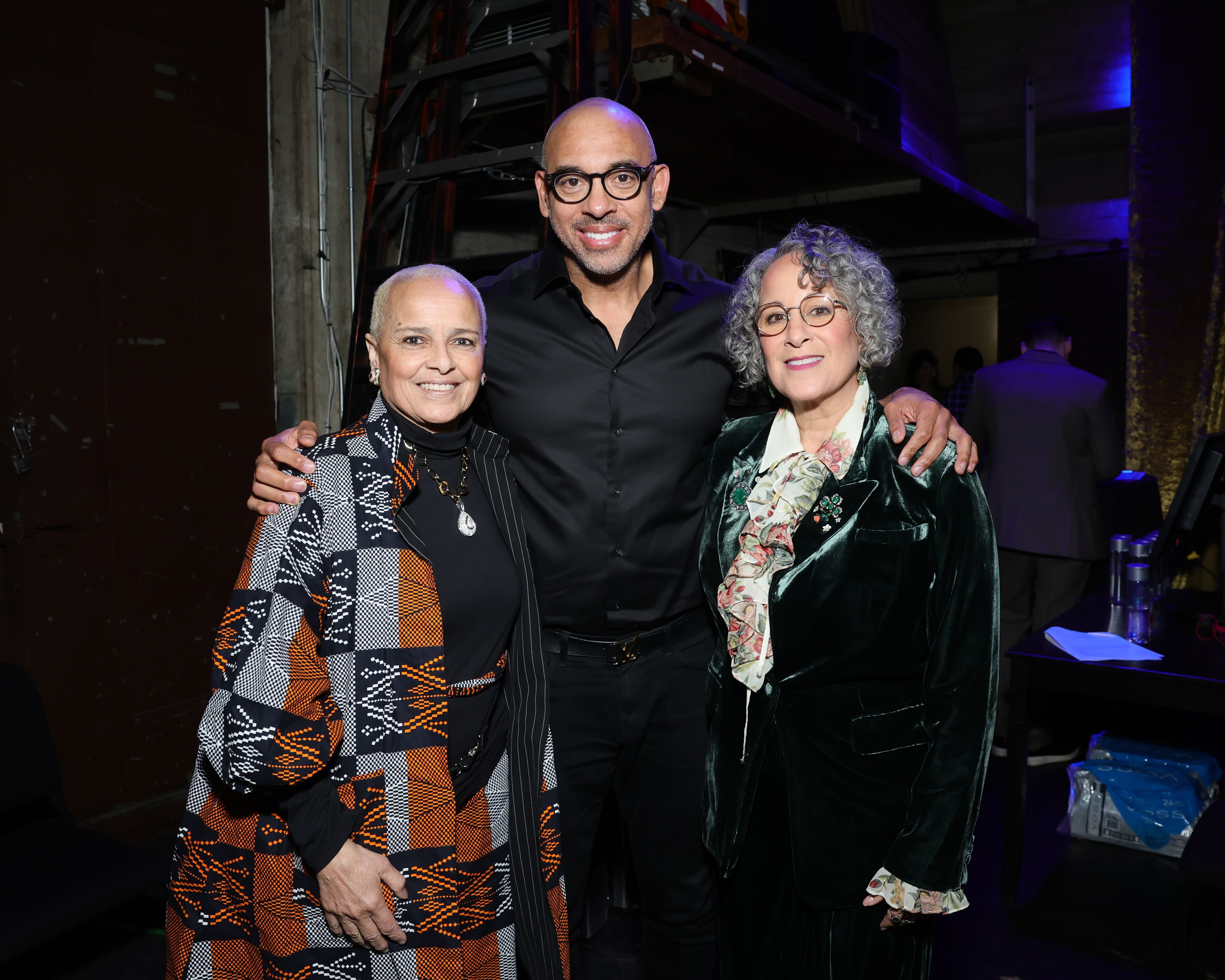Grammys 2025 Q&A: Nominees across genres sound off on musical evolution, inspirations, social change
Gloria Estefan stands on stage in front of a gold screen with a projection of a Grammy trophy. The 67th Annual Grammy Awards took place at Crypto.com Arena on Sunday. (Courtesy of Kevin Winter/Getty Images for The Recording Academy)
By Reid Sperisen
Feb. 4, 2025 3:10 p.m.
Amid the celebration of Grammys night comes reflection about the art that propelled musicians to the event.
At the 67th Annual Grammy Awards, music from classical to metal to roots gospel was recognized with nominations. Meanwhile, the Best Song For Social Change Special Merit Award took on a new title to honor civil rights activist Harry Belafonte. Together, the breadth of the Grammys’ categories found ways to honor both living legends and rising stars.
The Daily Bruin’s Reid Sperisen spoke to several nominated artists and music industry professionals about the music that brought them to Sunday’s ceremony.
These interviews have been edited for length and clarity.

Best Score Soundtrack for Video Games and Other Interactive Media
Daily Bruin: With “Star Wars Outlaws” being set in between “Star Wars: Episode V – The Empire Strikes Back” and “Star Wars: Episode VI – Return of the Jedi” in the broader “Star Wars” chronology, what was your process like for creating this music and balancing inspiration from John Williams with your own original composition?
Wilbert Roget II: Actually, I patterned the score after Episode IV, even though it (“Star Wars Outlaws”) takes place a little bit later, because that’s the start of Luke Skywalker’s journey, and it was the start of our protagonist Kay Vess’ journey as well. I wanted that sense of youthful adventure and action that is much more present in Episode IV, whereas it got more dramatic and darker by the time we had “Empire Strikes Back.” As far as blending the John Williams sound with my own, I studied John Williams’ music as much as I could. I did transcriptions, I did a lot of score study, and then I tossed that all aside and made sure that was an internal thing that I didn’t have to think about while I was writing. Instead, it was always there, and I would focus on working with world instruments, working with electronics and making sure that every single piece in the score existed on a continuum between the John Williams sound and the Will Roget sound.
[Related: Grammys 2025: 67th ceremony awards Beyoncé and Kendrick Lamar, encourages fire recovery in LA]

Best Classical Compendium
DB: You’re nominated for “Akiho: BeLonging,” but the “L” in “BeLonging” is stylized as a capital letter. Is there any particular reasoning behind that, and how are the multiple meanings of belonging expressed in this piece?
Imani Winds: This piece was written by a gentleman named Andy Akiho. It was written because we saw a protest at an immigrant detention center in Brooklyn. It was really cold that day in January, and the electricity went out, and everybody was cold in the detention center, so they were banging rhythmically on the walls of the detention center. It sounded like music, so we decided to use that as an inspiration for this collaboration that we did with Andy Akiho. He’s a phenomenal musician. He’s playing on the album. There’s the sounds of the protest on the album, and the idea of the album was that everyone belongs, and so this music was going to highlight how we all belong to the human family and how we should all be celebrated.

Best Metal Performance
DB: The last time you were competing at the Grammys was 15 years ago when you won Best Metal Performance for “Dissident Aggressor.” You’re nominated in the same category tonight. How do you feel that your music has evolved in the last 15 years?
Ian Hill (of Judas Priest): It shows that we’ve been able to keep ourselves current and relevant through the years. We’re getting nominated for something that was done just last year. It’s what we strive for, to stay current and keep up to date and keep with it.
Rob Halford (of Judas Priest): As Ian has pointed out, the substance of this band goes from the beginning of where we originated from and the way that we have always had an eye on what’s happening around us. And as Ian has said, relevance and importance are always vital for any musician to feel that they’re connected. Metal has been doing that for the last five decades for Judas Priest. … So whether we’re “Breaking the Law” or “Living After Midnight” or being your “Turbo Lover” or – as we are today – your “Crown of Horns,” it’s all really this thread, this heavy metal thread that is connecting. It makes us feel great, makes us feel good to still be here, still vital and doing what we love to do so much.

Best Roots Gospel Album
DB: How does your new album “Rhapsody” differ from your previous album “Look Up!,” and what do you hope listeners and audiences will take away from this project?
The Harlem Gospel Travelers: We were a lot more experimental with the genres and the blending that we did. We brought a lot more of our personalities and the music that has trained us and inspired us, and infused that with gospel music. Also approaching things differently, trying things that might be stupid but will come out on the other side and sound amazing, and we pushed each other. We trusted ourselves, and we were like, “No, you can go back in there and do better.” Moving forward in the future, it’s really about trusting ourselves more and inspiring other people to dig into the music and find out what is in there that can inspire you and inspire others as well.
[Related: Grammys 2025 Q&A: First-time winners share inspirations, emotions behind awarded compositions]

Harry Belafonte Best Song For Social Change Award
DB: Iman Jordan’s song “Deliver” is the first recipient of this award since the renaming in favor of your father, Harry Belafonte. Why do you think that this track embodies the message and legacy of your father and his social justice work?
Gina Belafonte: The thing about this particular song is a couple of reasons. One is the way in which the artist approached the music, which we didn’t know in advance how he was going to approach this song, but you can feel it in the way he sings it. You can feel it in the melody and in the rhythm, in the language, in the story that he’s telling. I also think it’s a call to action. It’s a request. It’s very hopeful. Our father was so much about calling things to action and engaging people to make change. This is a song that really brings community together. … It was so enlightening, and it was so inspiring to see so many people submit songs that they believed are about social change and about supporting community, mental health, climate, LGBTQIA – I mean so many different issues and causes. I also feel that Iman’s artistry embodies a lot of what our father stood for. As a person in the queer community, I think that he (Jordan) is sending a message out and also setting a bar in a way. It’s really, really exciting and inspiring.
